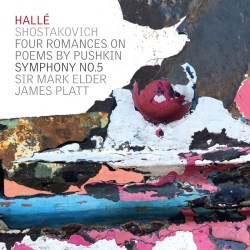Originally posted by RichardB
View Post
As to Strauss in the inter-war years, his biographer Norman del Mar refers to this period as being one in which the composer's inspiration was rarely on a level that he attained in his best work previously and since. Where Strauss's political sympathies (whatever they might at any time have been) are concerned vis-à-vis his music, some parallel with Shostakovich under a very different but no less restrictive and fear-inducing régime might not seem entirely inappropriate. Strauss' tenure as Reichsmusikkammer president lasted only until his dismissal just over 18 months after assuming that rôle and, given his Jewish daughter-in-law and grandchildren, it's perhaps a wonder that it lasted that long or even that he was appointed in the first place. There is some evidence of Strauss's privately expressed disapproval of the régime but, not unlike the case of Shostakovich, it seems reasonable to conclude that he probably felt that it might serve no-one's best interests by declining that appointment; Shostakovich lived from time to time in fear of what the régime might do to him and his family and it would seem to come as no surprise if Strauss shared similar fears. The extent to which Strauss could fairly be described as "fascism-friendly" even before 1933 is, I think, at least open to question. Many years ago, Humphrey Searle told me that, at his only meeting with Strauss (during his short period of study with Webern), the composer said that, at 75, he was tired of the oppressions and demands of the day and simply wanted to be left alone to compose...


Comment